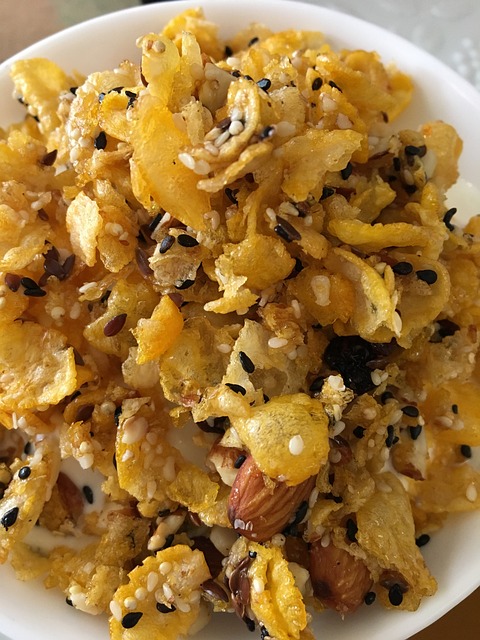Thinking of how to lose weight without exercising? Well, you are in the right place.
Some time ago, I realized I had gained a few extra pounds and lost my shape due to stress eating and other challenges arising from school. Determined to reclaim my former self, I embarked on a quest to lose weight without exercise because I didn’t like the idea of exercising.
I began experimenting with different approaches, documenting my findings in the hopes of helping others facing similar struggles.
Unnecessary methods such as reducing food intake or adopting extreme fasting programs failed to yield any weight loss within my desired timing
With this in mind, below are the following methods which worked for me.

Ways to lose weight without exercise
1. Avoiding late night Snacks
If you really want to lose weight without exercising, late night snacks are something you need to cut off.
Late night snacks were something i found very addictive back in school. Usually when I had projects and assignments that was due for the next day, I would usually stay up all night working on them and snacks were the best way of keeping me up. But once i started, there was no turning back.
Reason why late night snack causes obesity

Late-night snacking can contribute to weight gain and obesity for several reasons, stemming from both physiological and behavioral factors. Understanding these mechanisms can help you understand the consequences.
Reduced Metabolic Rate
The body’s metabolic rate tends to naturally slow down during the evening and nighttime hours as part of the circadian rhythm. Calories consumed late at night may not be as efficiently metabolized as those consumed earlier in the day, potentially leading to greater fat storage
Disrupted Sleep Patterns
Eating late at night can disrupt sleep patterns, especially if the snacks are heavy or rich in sugar and caffeine.
Poor sleep quality and insufficient sleep duration cause weight gain and obesity by altering appetite-regulating hormones, increasing hunger, and triggering cravings for high-calorie foods.
Increased Appetite Hormones
Consuming food late at night disrupts the normal secretion of appetite-regulating hormones, such as leptin and ghrelin, leading to increased hunger and cravings, even when caloric needs have been met.. This can result in overeating and weight gain over time.
Impaired Glycemic Control
Consuming carbohydrates late at night can disrupt glycemic control, leading to fluctuations in blood sugar levels and potentially promoting insulin resistance over time. This can contribute to weight gain and increase the risk of metabolic disorders like type 2 diabetes
In order to mitigate the risk of weight gain and obesity associated with late-night snacking, you can focus on establishing healthy eating patterns and addressing emotional triggers for late-night eating.
Additionally, promoting good sleep hygiene, such as establishing a regular sleep schedule and avoiding stimulating activities and heavy meals before bedtime can help prevent weight gain.
2. Eating a balanced diet

Back in school, we usually had to buy our own meals and sometimes cook it. Though the latter is the better, timing didnt favor me which made me resort to buying meals.One thing for certain was that the meals were not balanced. This is one factor which contributed to weight gain.
In today’s fast-paced world, it’s easy to fall into the trap of convenience foods and fad diets, but the key to long-term weight management lies in adopting a balanced approach to nutrition
Effects of balanced diet
Provides Sustained Energy
Unlike sugary snacks and processed foods, which offer quick energy but leave you feeling drained soon after, balanced meals provide sustained energy to fuel your activities. This steady energy supply supports an active lifestyle and reduces the likelihood of consuming excess calories out of fatigue or hunger.
Enhances Nutrient Absorption
Nutrient synergy (the interaction between different nutrients in the body) is maximized when you consume a variety of foods in balanced meals. This enhances nutrient absorption and utilization, ensuring your body receives the vitamins, minerals, and antioxidants it needs to function optimally.
Preserves Lean Muscle Mass
Adequate protein intake is essential for preserving lean muscle mass, which plays a key role in supporting metabolism and preventing weight gain. Including lean sources of protein, such as poultry, fish, beans, and tofu, in balanced meals helps maintain muscle tissue and promotes a healthy body composition.
Promotes Portion Control
Including a variety of nutrient-dense foods in each meal such as vegetables, lean proteins, whole grains, and healthy fats helps promote feelings of fullness and satisfaction. This makes it easier to practice portion control and prevents overeating, leading to better weight management over time.
Supports Metabolism
Eating a balanced diet supports a healthy metabolism, the process by which your body converts food into energy. By providing essential nutrients and promoting efficient nutrient absorption, balanced eating helps maintain metabolic function and prevent the accumulation of excess body fat.
Prioritizing balanced meals is essential for preventing weight gain and promoting overall health. By incorporating a variety of nutrient-dense foods into your daily diet and paying attention to portion sizes.
you can enjoy sustained energy, stable blood sugar levels, and better weight management. Remember, small changes to your eating habits can have a big impact on your health in the long run.
3. Eating more proteins

Protein is an essential macronutrient that plays a crucial role in various bodily functions, including muscle repair, hormone production, and satiety. This is backed by several scientific experiments and observations.
How more proteins in your meal helps in losing weight
Increases Satiety
Protein is the most satiating macronutrient, meaning it helps you feel fuller for longer after meals.
By including protein-rich foods such as lean meats, poultry, fish, eggs, dairy products, legumes, and tofu in your diet, you can reduce hunger and cravings, leading to fewer calories consumed overall and a lower risk of weight gain.
Promotes Fat Loss
High-protein diets have been shown to promote fat loss while preserving lean muscle mass, making them effective for weight management.
Protein helps your body prioritize fat burning over muscle breakdown, leading to a greater percentage of weight loss from fat stores rather than muscle tissue. This can result in a healthier body composition and a lower risk of weight regain.
Supports Weight Maintenance
Including more protein in your diet can help you maintain your weight loss over time by reducing appetite, preserving muscle mass, and supporting a healthy metabolism.
Protein-rich foods also tend to be more filling and satisfying, making it easier to adhere to a balanced eating plan and prevent weight regain.
Regulates Appetite Hormones
Protein consumption influences the release of hormones that regulate appetite, such as ghrelin and peptide YY (PYY). Ghrelin stimulates hunger, while PYY promotes feelings of fullness and satiety.
By increasing your protein intake, you can help regulate these hormones, reducing hunger and preventing overeating, which can contribute to weight gain.
In the past we had the belief that eating more can rather cause obesity, but science says otherwise.
4. Eating plenty of fibre

Fiber, a type of carbohydrate found in plant-based foods, offers numerous health benefits, including improved digestion, enhanced satiety, and better weight management
How it helps lose weight without exercising
Reduces Absorption of Calories
Some types of fiber, particularly soluble fiber found in oats, beans, lentils, and certain fruits, can bind to fats and carbohydrates in the digestive tract, reducing their absorption.
This can result in fewer calories being absorbed from the foods you eat, contributing to weight loss without necessitating restrictive dieting or calorie counting.
Promotes Gut Health
Fiber serves as fuel for beneficial gut bacteria, promoting a healthy balance of microorganisms in the gut microbiome.
A diverse and thriving gut microbiome associates with improved metabolism, reduced inflammation, and better weight management.
By nourishing your gut with fiber-rich foods, you support overall health and may facilitate weight loss.
Controls Appetite
Dietary fiber can help regulate appetite by slowing down the emptying of the stomach and stabilizing blood sugar levels. This prevents rapid spikes and crashes in blood sugar, which can trigger hunger and cravings for unhealthy, calorie-dense foods.
By controlling appetite and cravings, fiber contributes to better portion control and reduced calorie consumption, supporting weight loss efforts.
5. Limiting processed foods

Limiting processed foods was a major way which impacted the rate at which i lost weight. Processed foods, typically high in refined sugars, unhealthy fats, and additives, can wreak havoc on your waistline and overall health
How it helps lose weight
Reduces Empty Calories
Processed foods often load empty calories, providing little to no nutritional value.
By cutting out these empty-calorie sources like sugary snacks, sugary beverages, fried foods, and pre-packaged meals, you can significantly reduce your overall calorie intake, creating a calorie deficit that promotes rapid weight loss.
Boosts Nutrient Density
Whole, unprocessed foods are rich in essential nutrients like vitamins, minerals, antioxidants, and fiber, which are vital for optimal health and weight management.
By focusing on nutrient-dense foods such as fruits, vegetables, lean proteins, whole grains, and healthy fats, you ensure your body receives the nourishment it needs to function optimally while naturally curbing cravings and promoting satiety.
Enhances Metabolic Efficiency
Whole, unprocessed foods contain a balance of macronutrients—protein, carbohydrates, and fats—that support optimal metabolic function.
By fueling your body with nutrient-dense, whole foods, you provide the energy and building blocks needed for efficient metabolism, which can help maximize calorie burning and promote rapid weight loss.
Limiting processed foods is a powerful strategy for accelerating weight loss and achieving fast, sustainable results. By cutting out empty calories, added sugars, artificial additives, and unhealthy fats, you create a foundation for optimal health and successful weight management
6. Keeping a food diary

A food diary is a simple yet powerful tool that can help you become more mindful of your eating habits, identify areas for improvement, and stay accountable. This helped me lose weight without exercising.
Reasons why it helps lose weight
Increases Awareness
Keeping a food diary encourages mindfulness and awareness of what you’re eating throughout the day.
By recording everything you eat and drink, you become more conscious of your food choices, portion sizes, and eating patterns, which can help identify areas where you may be overeating or consuming excessive calories without realizing it.
Promotes Accountability
Keeping a food diary holds you accountable for your eating behaviors and decisions.
Knowing that you’ll need to record everything you eat can deter mindless snacking or overindulgence, encouraging more mindful eating habits and helping you stay on track with your calorie and nutrition goals.
Provides Insights
Analyzing your food diary entries can provide valuable insights into your nutritional intake, including macro and micronutrient composition, balance of food groups, and overall dietary quality.
This information can help you make informed decisions about your diet, identify areas for improvement, and optimize your meal planning for better weight loss results.
Essentially
There are so many ways on how to lose weight without exercising, but this particular combination really made the difference.
Although exercise may seem tiring, it can be also improved one’s physique.


Hi there,
My name is Mike from Monkey Digital,
Allow me to present to you a lifetime revenue opportunity of 35%
That’s right, you can earn 35% of every order made by your affiliate for life.
Simply register with us, generate your affiliate links, and incorporate them on your website, and you are done. It takes only 5 minutes to set up everything, and the payouts are sent each month.
Click here to enroll with us today:
https://www.monkeydigital.org/affiliate-dashboard/
Think about it,
Every website owner requires the use of search engine optimization (SEO) for their website. This endeavor holds significant potential for both parties involved.
Thanks and regards
Mike Phillips
Monkey Digital